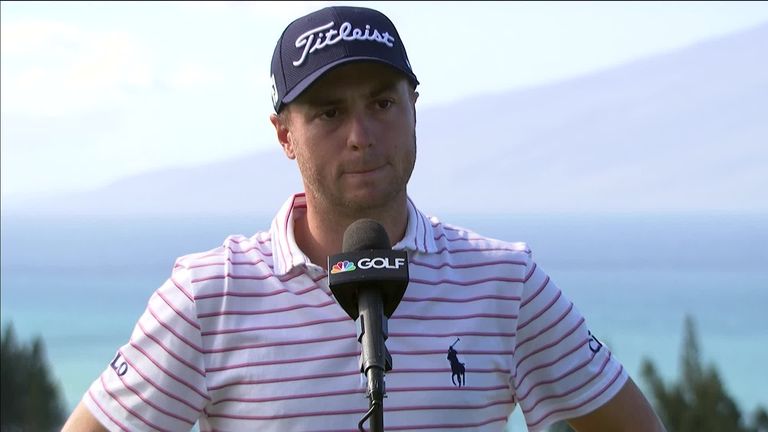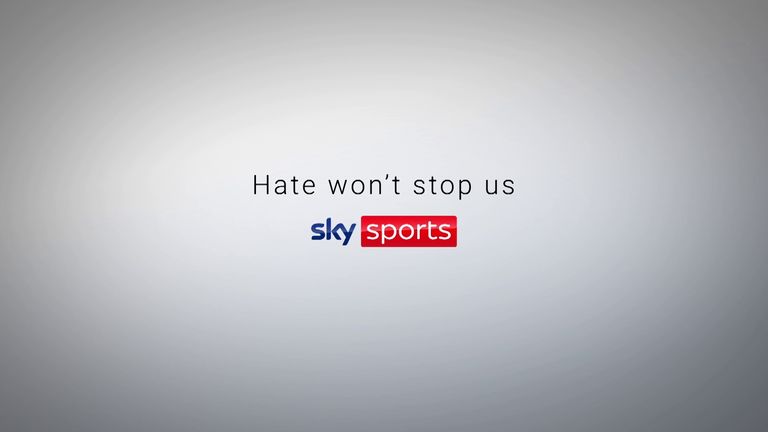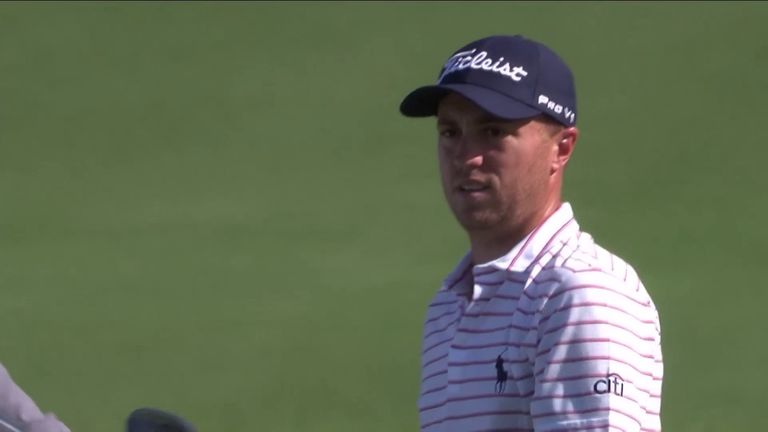
Ex-pro golfer Maya Reddy speaks to Sky Sports about Justin Thomas’ casual use of homophobic language and apology; Reddy feels ‘ease’ with which offensive word was used shows issues facing golf on inclusion; Thomas heard using slur while playing in Sentry Tournament of Champions
By Jon Holmes
Last Updated: 13/01/21 4:31pm
Maya Reddy, who quit pro golf after facing bigotry for being gay, says the sport must learn from Justin Thomas’ casual use of homophobic language.
Reddy, who is South Asian and grew up in California, qualified in 2016 at the age of 23 to play on the Symetra Tour – the LPGA’s developmental tour – but never competed in any events after deciding to walk away from the sport due to incidents of discrimination and a lack of inclusivity in the culture of professional golf.
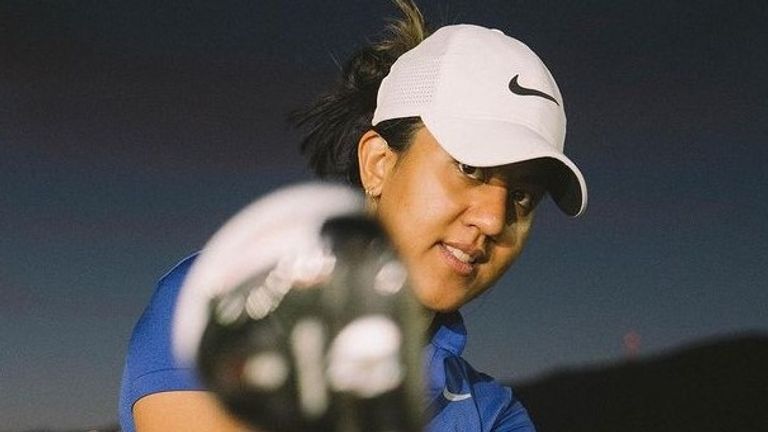
Reacting to the weekend incident involving Thomas, she told Sky Sports News the former world No 1 had used “a violent slur against a marginalised community” when he made an audible homophobic comment on day three at the Sentry Tournament of Champions.
Thomas issued an apology following his third round after he was heard using the offensive term ‘f****t’ following a missed putt on the fourth green, expressing his disappointment with his “inexcusable” language that was picked up by a greenside microphone.
He has also vowed to “get better” and said: “I wish that I could learn to grow a different way than the way that I chose to do it, but unfortunately it’s in the past and there’s nothing I can do about it now.”
Reddy said: “I’m kind of in two minds about it. I think the fact that he apologised about it so quickly and with force, saying that this wasn’t OK and that he should do better, is really important because he acknowledges the harm that using that specific slur causes.
“I think the PGA Tour saying that it wasn’t OK and acknowledging the harm it causes is also very important.
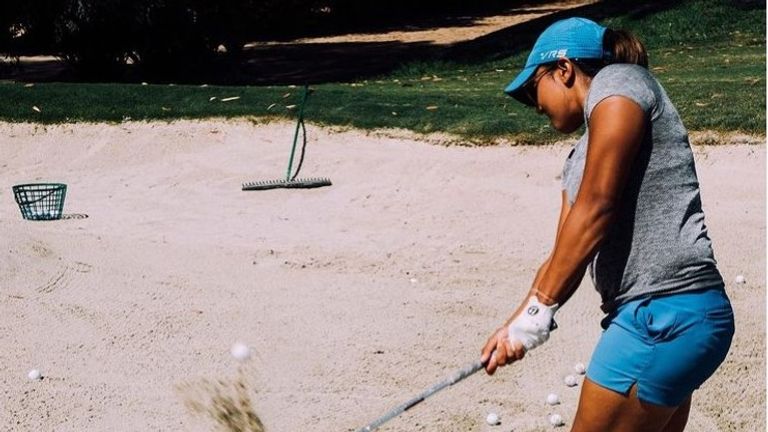
“That being said, what is frustrating for me and many who watched this play out, was that it was so easy for him to jump to that word.
“I was talking to a friend about this. I remember I had a caddie in a big tournament who berated me for using the other ‘f-word’, not the homophobic slur.
“I had pulled a drive and used the word and was completely berated by my caddie, who said, ‘you can’t say that as a professional athlete’.

“Whether you like it or not, because of the platform you have, you are a role model so you have to act accordingly.
“So I do sympathise with the need to shout when you miss a putt like Thomas did. However, the fact that the word he used was a violent slur against a marginalised community, is really important to take note of.
“The question is, why was it almost second nature for him to use that word? For Thomas to use a word that has been used discriminately and violently against gay communities, with such ease, shows that golf still has this culture embedded within it.
“It also demonstrates that golf is rooted in this very particular culture, and golf hasn’t always been a very inclusive sport. When you see something like this happen, it emphasises that exclusive culture.”
Reddy says a lot of the abuse she received during her career was done under the ‘guise of a joke’ but made her feel as though she did not belong on a golf course.
“Once you start playing professionally, it’s just you, and as many golfers know, it’s a grind to get to the LPGA Tour or the PGA Tour,” she said.
“Golf is a very lonely sport because you’re travelling a lot and every week you’re at a new tournament, so that was the first time I was out on my own.
“Unfortunately, the thrust of my professional career was in the lead-up to Trump’s 2016 election. At that time, there seemed to be permission given to people to say things and be more blatantly hateful. Unfortunately, again, I experienced a lot of that on the golf course.
“I had tournament directors on mini-tours say xenophobic, racist, and homophobic things to me on the first tee, in the guise of a joke.
“Which makes it difficult, because as soon as you say something in response, they question your sense of humour and say they’re only joking.
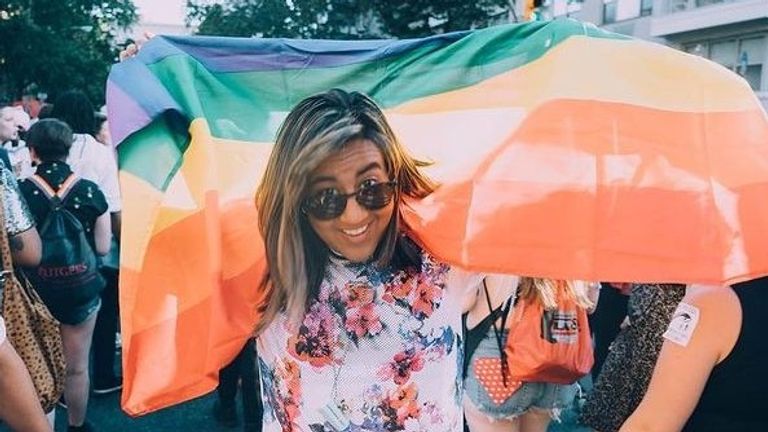
“Even though I knew I was good – I mean, I was playing professionally – I felt like I just didn’t belong there and had to constantly prove I had a place on this golf course.
“I would overhear people saying xenophobic and essentially Islamophobic things, and it was very hard to hear that.”
Coming out as gay helped, Reddy says, but the feeling of not belonging was one which was too powerful for her to overcome, and led to her retirement as a professional.
“Living openly and more authentically let me be a better player and less afraid,” she said. “But it was the thing of constantly going into a place that I loved and being told that I didn’t belong there in so many different ways, that was really difficult.
“I was trying to play a professional sport and negotiate all my identities and keep myself sane.
“I ended up having a mental and emotional breakdown and had to step away from the sport.”
This incident shouldn’t stop at just an apology (no matter how meaningful it was) & should show us all that there is so much work to still be done in golf and all sports to combat exclusive and discriminatory competitive cultures that so often stem from toxic masculinity.
7/7— Maya Satya Reddy (@mayareddy) January 10, 2021
Now 27, Reddy is currently pursuing a legal degree, and she also advocates for greater LGBTQ+ inclusion in sport as an ambassador for the organisation Athlete Ally.
She is interested in the possibility of a return to competitive golf in the future and hopes the important conversations sparked by the Thomas incident are channeled into actions that make the sport more welcoming and ultimately, more diverse.
“For me, as a queer golfer of colour, what has always been important is that acknowledgement that our experiences on the course or just walking into a club are a little bit different than our straight, white, cisgender counterparts,” she added.
“When we’re acknowledging that, when we’re creating space for that and working towards an understanding of why these exclusive attitudes are continuing, it’s a small but powerful step to break down the age-old, country-club cultures that are so definitive of the sport.”
While Reddy was not playing on the LPGA Tour at the time, Sky Sports News invited the LPGA to respond to her comments about her experiences in US women’s golf in 2016. They declined to do so.
Hate Won’t Stop Us
Sky Sports is committed to making skysports.com and our channels on social media platforms a place for comment and debate that is free of abuse, hate and profanity.
For more information, please visit: www.skysports.com/hatewontstopus
If you see a reply to Sky Sports posts and/or content with an expression of hate on the basis of race, colour, gender, nationality, ethnicity, disability, religion, sexuality, age or class, please copy the URL to the hateful post or screengrab it and email us here.

Get the best prices and book a round at one of 1,700 courses across the UK & Ireland

